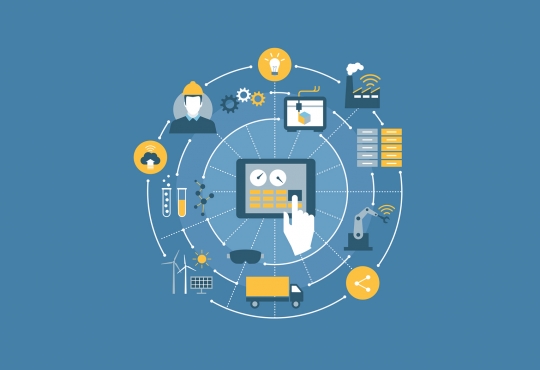In the modern world, there are a large number of technological advances that are made within a remarkable amount of time. They have all contributed to the lifestyles we are accustomed to, and a very noticeable invention that has increased in usage since its conception is the Internet. Due to the almost-instantaneous accessibility of information and opportunities for communication it provides, the Internet has grown significantly to a scale where people are dependent on it for doing their everyday activities. Students now use computers to do remote and interactive learning and homework assignments on Google Classroom, and people do teleconferencing and make important transactions online to be able to work and collaborate.
With the rise of information technology and the increasing demand for it, there are many more possibilities for it to be implemented in daily life. The main idea that explains these possibilities is the Internet of Things (IoT), which is defined as the integration of computers and related devices into appliances and utilities that by nature are not related to them. From self-driving cars to pipe systems, computers are used to regulate and enhance their usage, making it easier to control and manage systems. Now, people are able to operate remotely, and because of these new implementations of IoT, we have become more dependent on information technology to give us the information and control we need to work in our everyday environments. There is still more room for growth for information technology in daily activities and more creative ways to implement them to make these activities easier, such as the possible communication between cars and traffic lights to reduce traffic on the streets.
Despite the benefits that we get from applying the Internet of Things and the increase in applying them, they leave us more vulnerable to cybersecurity threats. With the increasing amount of computers and servers that we use to provide more information and services to each other, the more attack vectors cybercriminals have that can be exploited and controlled. If they are not stopped and the security checks and countermeasures are not taken, cybercriminals will be able to easily compromise computer systems, and from them, they can use them to control other computers because they are all interconnected on the Internet and other networks. In addition, with the implementation of the Internet of Things, online attackers can also aim to control systems other than computers, such as water and electric utilities used that provide people with electricity and clean water. On a global scale, countries can attack each other on another front other than the physical battlegrounds: they can attempt to infiltrate strategic targets to control their resources, which may significantly constrict the countries involved. Thus, in the future, the trend seems to be that there will be an increasing need for cybersecurity due to the increased usage of information technology.
Because of the rising importance of cybersecurity in the real world, there must be actions taken to combat such threats in our daily lives. Fortunately, there are a couple of solutions. One would be to increase the awareness of the vulnerabilities of computer systems so as to bring attention to the issue. With accrued attention to the subject, people would become more concerned with protecting their computer systems, and more than likely they will tell of their attention to their peers. On my end, I often tell my peers and others about cybersecurity news to demonstrate the oncoming threat of cybercrime and help them realize the importance of maintaining a safer online environment. In addition, people can be encouraged to learn and maintain basic cybersecurity practices, such as maintaining strong passwords or hiding and protecting confidential information. Although most people do not know the nitty-gritty parts of how information technology works, it would be effective to slowly introduce them to basic cybersecurity principles and practices that they can easily implement in their lives so that they are more protected from online threats. Especially for young adults, they can be introduced to cybersecurity more easily through information sessions. For those in school, having cybersecurity classes or extracurricular activities concerning it like competitions or clubs may help them to broaden their knowledge and perhaps gain an appreciation or passion towards cybersecurity.
In my experience, I was able to gain and grow a passion for cybersecurity from competing in CyberPatriot competitions where students like myself were challenged to protect and secure computer systems and networks in simulations. In addition, there were Capture-The-Flag competitions that caught my attention that piqued my interest in learning the technicals of information security by doing interactive challenges and thinking like an online attacker to solve them. When I was the club leader of cybersecurity in my high school, I brought attention to the competitions I participated into other students to get them to learn about cybersecurity and to inspire them to learn more as I did, and I found it to be effective. Young adults like myself are already exposed and used to the use of information technology, and demographically, it is young adults who tend to use technology the most, so if they are exposed earlier to cybersecurity and more of them recognize the importance of it in our daily lives, it will make for a safer online environment for all.
Works Cited
“How the Internet of Things Will Impact Global Business.” Velocity Global, 23 June 2020, https://velocityglobal.com/blog/industry-news-how-the-internet-of-things-will-impact-global-business/.


